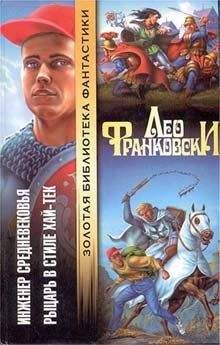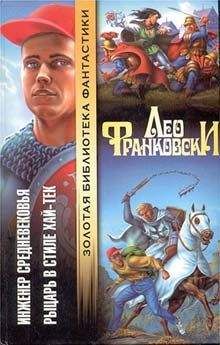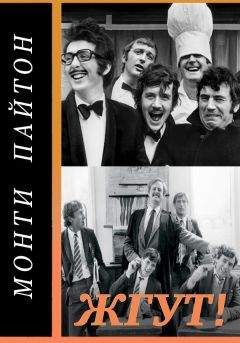Лео Франковски - The Flying Warlord
"You have relieved my mind, Lambert."
"If you say so. Myself, I can't imagine how you thought I could have done otherwise! Now then, shall we see to my defenses? And afterward, you shall have supper here with me and my daughter, and you shall see what you missed out on!"
FROM THE DIARY OF TADAOS KOLPINKSI
In the last week of February, the ice on the Vistula was breaking up some, but it wasn't gone. Like usual, it'd drift downstream and jam up at some turn, then more ice would pile on top, then that night, sure as Hell for a Heathen, it would turn cold again and the whole damn thing would freeze solid.
I had three boats on the river and we was loaded with bombs, something new we wasn't sure would work. They was big iron barrels filled with gunpowder and weighted so's they'd just barely sink. There was a slow fuse in a bottle in one side, and the idea was when you came to a jam, you lit one, screwed down the cap, and got it over the side before it blew up in your face. It was supposed to drift with the current under the jam while you was paddling backward under full steam.
Sometimes it worked. Sometimes it drifted too far or not far enough. Once it blew and took the whole damn boat with it.
At least I think that was what happened. Nobody from The Pride of Bytom lived to tell about it. We just heard the blast around the bend, and when my own Muddling Through got there, well, there wasn't much left. Every barrel in her must have blown with the first one.
But we was pushing the ice downriver, and not that much was coming from upstream behind us. Once we got past Cracow, I ordered the other boats out, so's we could at least patrol what was clear. They went down their ways without a hitch and each loaded up with six war carts and a full company of warriors.
We continued north with the Hotspur, blowing ice and sometimes getting a shot at a Mongol patrol, until we got to the River Bug. It was froze solid and there was nothing we could do about it. We was out of bombs then, and there wasn't no way we could work upstream, anyhow. I'd hoped to save maybe three dozen of them bombs for another project I had in mind, but there was no way to do it, what with the loss of The Pride of Bytom and all. We couldn't get up the Dunajec either, so all of Poland west of the Vistula was left open to the enemy.
But we did what we could, damn it! What else can a man do?
The other boats was running into bigger patrols and we turned back to pick up our troops at East Gate. It took a while. Doctrine was to give refugees a lift across the river when we weren't actually in a fight, and we had to stop and ferry God knows how many thousands of people across.
The planes was up and flying whenever the weather was decent, and they'd tell us about refugees and Mongol patrols. They had these big arrows with a long red ribbon on them that they'd drop right on your deck. They'd stick tight in the wood and it was amazing they never killed nobody. But there'd be a message in the arrowhead that wasn't hardly ever wrong. Them flyboys was okay.
In two places we found river ferries that we put into service and to hell with their owners. They was both of the long rope kind that Count Conrad invented years ago. In both places I put two of my men ashore to work them, since a civilian couldn't be trusted not to run. Not one of those four men lived. They stuck to their jobs till they was all killed. Let me tell you their names. They were Ivan Torunski and his brother Wladyclaw, and John Sobinski and Vlad Tchernic. Good men, every one of them.
That was all we could do for them refugees, though. Lift them across and give them a map showing where they was and where the safe forts was. Maybe some of them made it alive.
We'd been telling people for years that noncombatants should evacuate by the first of February, handed out leaflets and wrote magazine articles, but the fools wouldn't move until they was burned out and half of them was dead. But you can't let a kid die just 'cause his folks are dumb!
Then half the idiots would want to ferry their cow across, too, when there wasn't hardly room for the people! But doctrine was to leave the animals for the Mongols to eat, cause if they couldn't get animals, them bastards would eat humans!
Our own people was out of there long before that. The inns and depots was long closed down except for the radios. The baron had called for volunteers to man the forward radios so we would know where the enemy was. Almost all of those people, half of them women, stayed at their posts. Sometimes there was some last words, sometimes not. Usually we found out that a site had been taken when the radio went off the air.
When we got to East Gate, Count Conrad was waiting for us.
FROM THE DIARY OF CONRAD STARGARD
On the last day of February, we seemed to be ready. We had to be, for we were moving out at dawn. The new troops hadn't been given the graduation ceremony that all the other classes had gotten. There was simply no way that we could have scheduled that many men to do the hillside vigil. The halo effect didn't happen that often in the wintertime, and anyway, these men weren't being knighted. With only four months of training, and all of it physical training, they just weren't ready for it.
But every one of them was armored and armed, and they knew how to use those arms. Their equipment had been inspected hundreds of times, as had the contents of their war carts. They had spares, bedding, food for a month, and a ton of ammunition in each cart.
That afternoon, people were running to me with scores of last minute problems, things that should have been done earlier, or things that should have been done without my knowledge. I think that everyone else's nerves were about as shot as mine, and they all wanted stroking. Well, I wanted it too, and I wasn't getting it either. I was growling at people.
At this point I got a surprise visit by two priests. They spoke Italian and Latin. I spoke Polish and Modem English. I don't even understand how they got in to see me, but I had them sit in the outer office and had a runner find Father Thomas Aquinas. Maybe he could figure out what they wanted.
Fifteen trivial problems later I was getting ready to start chewing holes in my desk. At this point Father Thomas came in.
"It's the Inquisition," he said. "Was there an inquisition being held concerning you')"
Good God in Heaven! Nine and a half years had gone by since the thing had started, and they had to pick today of all days to show up.
"Yes," I said, "but it concerns something that happened long ago. Ask them what I can do for them."
They talked a while in hesitant Latin, their arms stiffly at their sides. Then they seemed to discover that they all spoke Italian and the conversation speeded up considerably, and their arms started waving. They brought out a thick sheaf of parchment, but wouldn't let Father Thomas see it. They handed it to me. I looked it over. It was all in Latin.
"They want you to read this and say if it is the truth," the Father said.
"Tell them that I'm sorry, but I don't speak Latin. I don't read it or write it, either."
They looked sheepishly at each other as Father Thomas translated what I had said. There was more conversation, and I finally got the idea that they weren't allowed to tell Father Thomas what the case was about. They couldn't tell it to the interpreter and they couldn't speak my language. And it hadn't occurred to the silly twits until now that they might have a problem!
They argued between themselves for quite a while, mostly in what had to be unfinished questions, for there were a lot of pregnant silences and glaring eyes. I didn't know whether to laugh or to cry, but I figured that either one could get me into trouble, so I just hung in there. Finally, they came up with what they thought was a suitable question, but maybe it didn't translate well.
"What do you think is the truth of the matter in which you might think we are talking or"
I had to puzzle that out a bit. Then I said, "If this is concerning the matter that I think it might be about, I regret to inform you that I made a solemn oath to Father Ignacy, who is now the Bishop of Cracow, in which I vowed to discuss the matter with absolutely no one. I therefore can't answer what I think might be your question."
I had to repeat that three times before Father Thomas dared make a stab at translating it. Even then, they talked a long time in Italian before they got back to me.
Father Thomas looked at me and said, "I think what they want to ask you is 'What should we do now?"
"Tell them that they should talk the matter over with his excellency, the Bishop of Cracow. Draw them a nice map. Use small words and big letters. Point them on the road and wish them well."
"Yes, sir."
The clergy left and I got back to work. With any luck, the twits would run into a Mongol patrol and the next bunch the Church sent, in another ten years, might have some of the brains that God surely had intended to give them!
We formed up at dawn on the morning of March first, the training completed. A hundred fifty thousand men stood at attention on the great concrete parade ground.
I nodded to a priest, who said a quick mass without a sermon. Few of the men could have heard him, anyway. Then I nodded to Baron Vladimir, Hetman of the Army, and he led the troops in the oath that I had cribbed years ago from that of the Boy Scouts. It was fitting. Many of these troops weren't much older than Boy Scouts.
We raised our right arms to the rising sun, and a sixth of a million men chanted with me:
"On my honor, I will do my best to do my duty to God and to the Army. I will obey the Warrior's Code, and I will keep myself physically fit, mentally alert, and morally straight. "The Warrior's Code:"
"A warrior is: Trustworthy, Loyal, and Reverent. Courteous, Kind, and Fatherly. Obedient, Cheerful, and Efficient. Brave, Clean, and Deadly."
Hearing that many men chant it, well, there was quite a difference from that first class of thirty-six men we graduated four years ago.
"Hetman," I said, "advance the army!"
Vladimir raised his voice and shouted to his three kolomels, "Kolumns, advance!"
And the three kolomels, the Banki brothers, turned to their eighteen barons and shouted, "Battalions, advance!"
And eighteen barons turned to a hundred komanders and shouted, "Komands, advance!"
And a hundred komanders turned to six hundred captains and shouted, "Companies, advance!"
And six hundred captains turned to thirty-six hundred banners and shouted, "Platoons, advance!"
And thirty-six hundred banners turned to twenty-one thousand knights and shouted, "Lances, advance!"
And twenty-one thousand knights turned to a hundred twenty-six thousand warriors and shouted, "Warriors, advance!"
And a hundred twenty-six thousand warriors shouted, "Yes, sir!"
It made a nice ceremony with a good crescendo effect. It would have been nicer if we could all have swung out right then and there, but of course there were the war carts. The men marched out to them, and the first few hundred were already on the tracks, but it was almost noon before the last cart went out the gate. Not that the departure was disorganized, far from it. We were double-tracked and the men moved out at a quick march, but it takes time for thirty-six hundred big carts to move down a pair of tracks. The column was sixteen miles long.
Yet once moving, they didn't stop. Early on, we had found that eighteen armored men could easily tow a war cart filled with their arms and supplies, and with the rest of the platoon riding on it, so long as it was a railroad track. A cook stove was slung from the back of the cart, and three cooks could keep the men fed. There was room for the other half of the platoon to sack out on top of the cart or to be slung from hammocks below it. Working three hours marching and three hours resting, they could go on indefinitely, making six dozen miles a day without ever breaking into double-time. Most caravans were happy to do two dozen miles, and few conventional military columns could do that! Actually, providing we could stay on the rails, we could probably outrun the Mongols. Providing.
I sat on Anna, watching them go out the gate. There was a big crowd outside cheering them on, dependents and refugees who were waiting to move into Hell as we left. Odds were that they were cheering more because we had vacated the premises than because we were going out against the enemy. Some of those people had been out there in the snow for days.
But there were others whose job it was to worry about those left behind. My job was with the riverboats. I was about to leave for it when a strange company of troops came up. I say strange because they were out of uniform. They had turbans wrapped around their helmets. Then I spotted Zoltan sitting on one of the carts. I went up to him and rode by his side.
"Zoltan, what the hell are you doing here?"
"Doing. sir? Why, I am riding off to war against my ancient enemies, the Mongols! We have many old scores to settle with them as you would say. And you must not call me Zoltan, sir. Not here. Now I am Captain Varanian of the two-tendy-eighth."
"But I never said that you could join the army! This is a Christian army!"
"True, my lord, but you never said that we couldn't, either. As to the Christians, we are not prejudiced, and we keep to our own company in any event."
"There's a whole company of you? How is that possible? Eight years ago there were only fifty men in your band, and no children. How can there be two hundred fifty of you now?"
"Oh, the word spread of your generosity and our security under your protection, my lord. Others of my people who were scattered over the world came to us in ones and twos and what could we do? Could we send them back to the cold and cruel world? So we took them in, even as you took us in. And now they repay you, with their lives, perhaps."
"I thought that there were only a hundred families of you."
"From Urgench yes, my lord. But there were many other cities in Khareshmia that is no more. Is it not enough that we join you in this Holy War?"
"Yes, I suppose it is, Captain. Carry on." I just hoped the Church never got wind of it.
The last company in line were specialists in cart repair, set up to get stragglers back on the road. Once they went by, Anna and I rode the trail beside the track and the men cheered us the whole way. I smiled and waved at them until my arm got sore, then switched arms. Good. Morale couldn't be better.
Halfway to East Gate, we passed the first of them, and Anna went over to the track. She said it was easier to run on the wood than on the ground. Springier.
I got there to find the RB1 Muddling Through just rounding the bend with the RB14 Hotspur right beyond her. There were also three companies of troops waiting to board them. They hadn't heard about the loss of the RB23 The Pride of Bytom, so I told the captain of the company that had been assigned to it that he would have to join up with the regular army. His boat fide was gone.
I turned to Anna.
"Well, girl, this is where we part company for a while."
She gave me an "I don't like this" posture.
"Now don't start that again! We talked this over weeks ago. There wouldn't be anything you could do on a boat but take up space. Baron Vladimir needs your help. You like Vladimir, don't you?"
She nodded YES, but sulkily.
"I know you don't want to leave me. I don't want to leave you either, but this is the sensible thing to do. Look, give me a hug."




